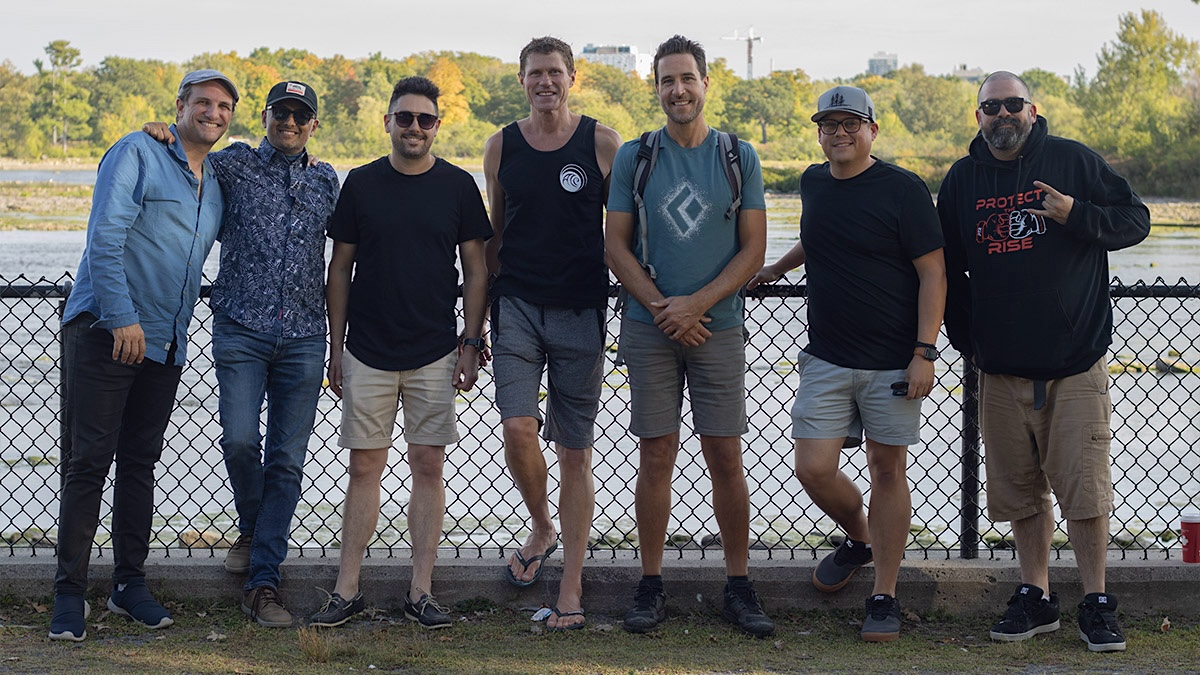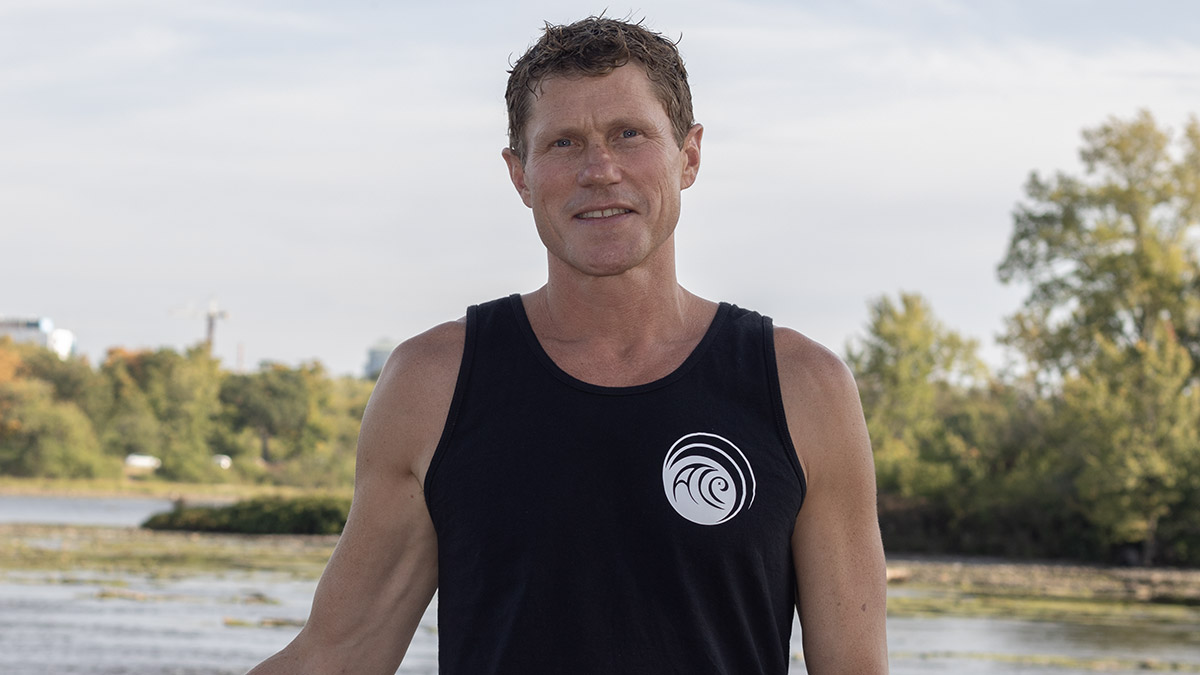In the fading light of a September afternoon, a small group of men gathered along the edge of the Bates Island parking lot. To bystanders, this gathering might have seemed ordinary. Trevor Stevenson says this is the future of men’s mental health.
Stevenson, a life coach of more than 20 years, runs Men Leveling Up, a workshop for Ottawa men looking to talk about personal development in a supportive environment. By the end of the two-hour session, Stevenson hopes participants will leave with the tools to handle strong emotions without lashing out or shutting down.
“This workshop is an opportunity for local men to come and start to grow emotional self-awareness,” Stevenson said.
Stevenson leads participants through a conversation about their lives and their personal struggles to get real-time support from a community of emotionally aware men in a scenic location.
“We kick off [a] conversation and then we’ll just go into whatever’s alive and real for people,” he said.
Men Leveling Up is the local initiative from FUNdaMENtal, a digital community where men around the world share their journeys.
As CEO and Founder of FUNdaMENtal, Stevenson said tools like mindfulness and exercise helped him recognize how his own negativity impacted others. “[I saw] my own habits that came from my father, that came from his father, showing up in my kids […] and now I want to change.”
For men, when we’re younger, asking for help isn’t encouraged. The thought of asking for help can be seen as weakness.
Trevor Stevenson, CEO and founder of FUNdaMENtal
Men Leveling Up is one of several support groups for men that have been founded in the last few years in Ottawa.
Ottawa Public Health, for example, has just started offering Cognitive Behavioural Therapy group sessions for new fathers at risk of depression. A year ago, The Royal Ottawa Mental Health Centre began hosting weekly support groups for male patients and former patients.
These groups are reacting to a perceived decline in men’s mental health. A 2025 Canadian Men’s Health Foundation’s national survey found more than 65 per cent of men report higher levels of daily stress compared to previous years. Most have never received any form of professional help.
Stevenson said the statistics don’t surprise him. “There is a huge stigma about men coming out to things where we’re going to talk about emotions,” he added. “It all comes down to conditioning. For men, when we’re younger, asking for help isn’t encouraged. The thought of asking for help can be seen as weakness.”
This can lead to isolation. The Canadian Mental Health Association found that half of men are at risk of social isolation and lacking adequate social supports.
Dr. Rebecca Jaremko Bromwich is a Carleton University law professor with expertise in feminist law. She said Canadians are talking more about wellness but the country lags when it comes to de-stigmatizing men’s mental health.
“If you look at psychological literature about trauma processing, emotions don’t just disappear,” said Bromwich. “Men end up with a lot of negative ways of coping and of expressing feelings, including violence, alcoholism and all kinds of self-medication with substances.”
Bromwich said men are often encouraged to suppress their emotions while growing up, which has negative consequences on their own mental health and the health of people close to them.
“There’s a lot of talk about the male loneliness epidemic right now,” she said. “Men’s mental health, isolation, and male loneliness are all issues that need to be considered together.”
 Trevor Stevenson and Patrick Cyr (centre) said emotional intelligence is a skill every man should develop. [Photo © Yanjano Banda]
Trevor Stevenson and Patrick Cyr (centre) said emotional intelligence is a skill every man should develop. [Photo © Yanjano Banda]
Among the men gathering on Bates Island this past month was Patrick Cyr, who has attended the workshop twice. Cyr said his upbringing as a teenager in a small Northern Quebec town in the 1990s greatly influenced his view of masculinity. He said the culture then didn’t encourage men to ask for help.
“You start drinking and doing drugs really young,” Cyr said. “It doesn’t leave a lot of room for, ‘Hey guys, let’s talk about our feelings!’”
Cyr, 46, now believes emotional self-awareness is essential to healthy masculinity. “The modern man needs to be equipped with emotional intelligence to have good relationships and a fulfilled life,” he said.
He added that building these skills takes work, but the first step is overcoming the belief that talking about feelings is weak.
“We joke about talking about our feelings, but we never do. Once you pass that threshold, it opens up a whole new world.”

